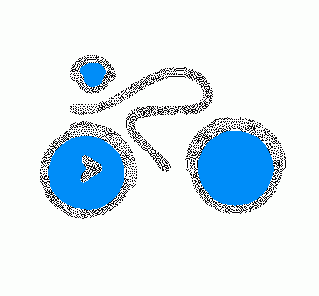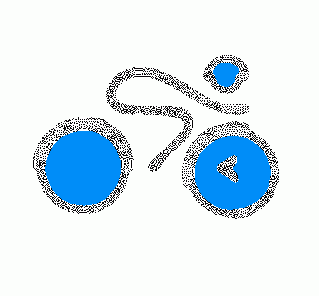| Newsletter - 2010 Archive |
 |
Cycling Club |
 |
| Newsletter - 2010 Archive |
 |
Cycling Club |
 |
Next--->
|
The "Ethics" of Randonneuring When I first started riding brevets, I wondered how a signature with a time beside it was acceptable proof of passage. There is "tradition" that may come in to play but it made me think about the reasons we do these rides. If it were a race, with some "glory" at the end, perhaps cheating would be a motivation...but its not, and the only "glory" is the self awareness of a major accomplishment, and a very nice PIN! ...and so even beyond the ethics around cheating...why bother fudging the truth? At the heart of our sport is the control card. It is this simple piece of paper that proves we did what we said we did. On some brevets, run in towns and with the help of volunteers, we build in checks - we staff certain, or all controls and we add in Secrets. Sometimes the Secret is placed where two possible roads could be taken to the same point within a route presumably to catch out riders who decide to take shortcuts. I like Secrets, not because they catch the cheats, but because they usually come well supplied with at least a nice baked goodie or two. But on more remote routes, it is up to each rider to ensure they follow the rules. From the start of my experience in this great sport, I followed my friend Philips lead, and always played it by the book. There are many "rules" but I think there are two that really define what we do. We follow the route sheet (minus errors) exactly and we adhere with a reverence to the time limits placed on each control. It seems to me the crux of this endevor to meet the time and distance challenges and not ever think of fudging the results. For myself, the thought of going down the compromise route might allow me to claim a completed distance but in the end, I am cheated out of the true value of these rides: a self knowledge that I have tackled something very hard and come out on top. On our failed 1000km attempt on Vancouver Island, no one was at the Sayward Control, to check if we would make it on time. We could have waited out my illness, and pushed through to Campbell River, missing the closing time of Sayward (but self-signing within the time) , and making the Campbell River control before closing time. But the thought of doing that never even came to mind...we would not make the time in Sayward, so we DNF'd in Woss, end of story. There are many challenges that a Randonneur faces on the journey know as a brevet. But time is the ever present companion that keeps moving and never stops even when the Randonneur does. Once the clock starts ticking at the beginning of the brevet, it turns a long distance ride into a challenge more broad than just covering miles. Now time management comes into play. How long can I stop, eat, sleep, rest, ride. Control times offer the rider goals to reach within the bigger event. Riding my bike has always been enjoyable, but now adding a route with time limits built in, makes it enjoyable with a challenge. In my mind it would destroy the whole point of riding a brevet if I would either not follow the route or fudge a control time . Why bother riding a brevet if cheating was even an option in your mind. I think those of us who choose to ride through the night for nothing more that a self congratulatory pat on the back and nice looking pin, are not cheaters at heart...we go the distance for the love of riding and challenge of finishing in the time allowed. If we cannot complete these two things , then we choose to DNF because there is no other option....
- October 27, 2010 |